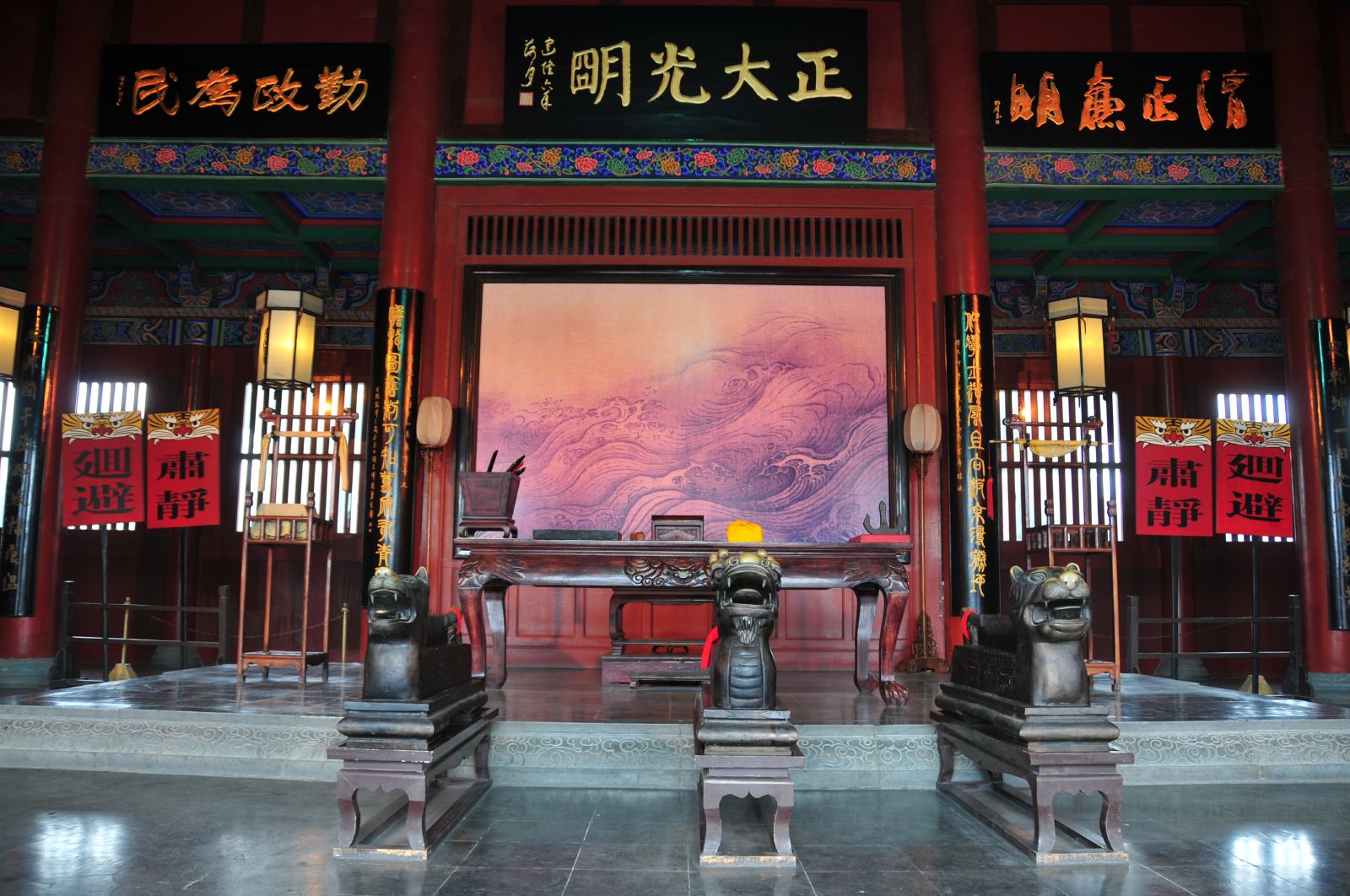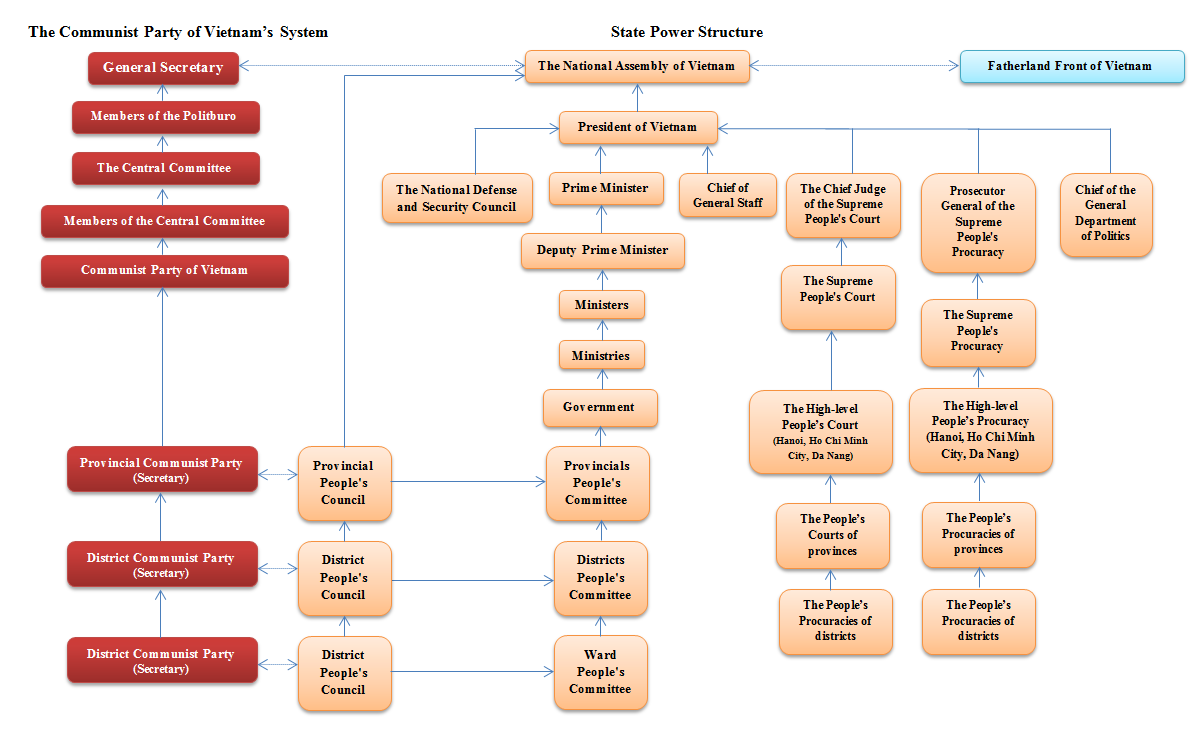|
Bùi Bằng Đoàn
Bùi Bằng Đoàn (; Chữ Hán: 裴鵬摶; 11 September 1889 – 13 April 1955) was a Vietnamese politician. He led the League for the National Union of Vietnam (Hội Liên hiệp quốc dân Việt Nam/Liên Việt) 1946–1951 and was Chairman of the National Assembly of Vietnam. Bùi Bằng Đoàn started his political career as a mandarin working for the Confucian bureaucracy of the Southern dynasty in Tonkin, starting his career in 1913 as a district magistrate working up to become minister of justice for Annam in 1933. Following the August Revolution the chairman of the Indochinese Communist Party Hồ Chí Minh invited him to become a special inspector in the newly established government of the Democratic Republic of Vietnam where he would later be elected to become a member of the Standing Committee of the National Assembly on 6 January 1946. Bùi Bằng Đoàn's son Bùi Tín, a senior Communist Party editor, defected to France in 1990. Biography Bùi Bằn ... [...More Info...] [...Related Items...] OR: [Wikipedia] [Google] [Baidu] |
His Excellency
Excellency is an honorific style (manner of address), style given to certain high-level officers of a sovereign state, officials of an international organization, or members of an aristocracy. Once entitled to the title "Excellency", the holder usually retains the right to that courtesy throughout their lifetime, although in some cases the title is attached to a particular office and is held only during tenure of that office. Generally people addressed as ''Excellency'' are heads of state, heads of government, governors, ambassadors, Roman Catholic bishops, high-ranking ecclesiastics, and others holding equivalent rank, such as heads of international organizations. Members of royal families generally have distinct addresses such as Majesty, Highness, etc.. While not a title of office itself, the honorific ''Excellency'' precedes various titles held by the holder, both in speech and in writing. In reference to such an official, it takes the form ''His'' or ''Her Excellency''; in ... [...More Info...] [...Related Items...] OR: [Wikipedia] [Google] [Baidu] |
French Indochina
French Indochina (previously spelled as French Indo-China), officially known as the Indochinese Union and after 1941 as the Indochinese Federation, was a group of French dependent territories in Southeast Asia from 1887 to 1954. It was initially a federation of French colonial empire, French colonies (1887–1949), later a confederation of French associated states (1949–1954). It comprised French protectorate of Cambodia, Cambodia, French protectorate of Laos, Laos (from 1899), Guangzhouwan (1898–1945), French Cochinchina, Cochinchina, and Nguyễn dynasty, Vietnamese regions of Tonkin (French protectorate), Tonkin and Annam (French protectorate), Annam. It was established in 1887 and was dissolved in 1954. In 1949, Vietnam was reunited and it regained Cochinchina. Its capitals were Hanoi (1902–1945) and Saigon (1887–1902, 1945–1954). The Second French Empire Cochinchina campaign, colonized Cochinchina in 1862 and established a French protectorate of Cambodia, protect ... [...More Info...] [...Related Items...] OR: [Wikipedia] [Google] [Baidu] |
Indochinese Communist Party
The Indochinese Communist Party (ICP) was a political party which was transformed from the old Vietnamese Communist Party () in October 1930. This party dissolved itself on 11 November 1945. It is considered the first stage in the history of the Communist Party of Vietnam. Background The Vietnamese Communist Party was founded on 3 February 1930 by uniting the Communist Party of Indochina (despite its name, this party was active only in Tonkin) and the Communist Party of Annam (active only in Cochinchina). Thereafter, the Communist League of Indochina (active only in central Annam) joined the Vietnamese Communist Party. However, the Comintern argued that the communist movement should be promoted in the whole of French Indochina (including Cambodia, Laos and Vietnam) rather than only in Vietnam, therefore it urged the Vietnamese Communist Party to transform itself into the Indochinese Communist Party. The Communist International had a substantial degree of control both ov ... [...More Info...] [...Related Items...] OR: [Wikipedia] [Google] [Baidu] |
August Revolution
The August Revolution (), also known as the August General Uprising (), was a revolution led by the Việt Minh against the Empire of Vietnam from 16 August to 2 September 1945. The Empire of Vietnam was led by the Nguyễn dynasty and was a puppet state of Empire of Japan, Japan within the Greater East Asia Co-Prosperity Sphere. The Việt Minh, a political league ''de facto'' led by the Indochinese Communist Party, Communist Party, was created in 1941 and designed to appeal to a wider population than the communists could command. The Việt Minh was supported by the United States, US. The revolution had the participation of factions that did not follow the Việt Minh. The Japanese army in Vietnam did nothing to prevent the revolution as they ''de facto'' surrendered to the Allies and World War II ended. There was only a Battle of Thái Nguyên, sporadic clash in Thái Nguyên with inconclusiveness. Japan still recognized its puppet as the legitimate government of Vietnam ... [...More Info...] [...Related Items...] OR: [Wikipedia] [Google] [Baidu] |
Annam (French Protectorate)
Annam (; alternate spelling: ''Anam''), or Trung Kỳ (), was a French protectorate encompassing what is now Central Vietnam from 1883 to 1949. Like the Tonkin (French protectorate), French protectorate of Tonkin, it was nominally ruled by the Vietnamese Nguyễn dynasty. Before the protectorate's establishment, the name ''Annam'' was used in the West to refer to Vietnam as a whole; Vietnamese people were referred to as Annamites. The protectorate of Annam became a part of French Indochina in 1887. The region had a dual system of French and Vietnamese administration. The government of the Nguyễn Dynasty still nominally ruled Annam and Tonkin as the Empire of Đại Nam, with the emperor residing in Huế. On 27 May 1948, the protectorate was partly merged in the Provisional Central Government of Vietnam, which was replaced the next year by the newly established State of Vietnam. The French legally maintained the protectorate until they formally signed over sovereignty to th ... [...More Info...] [...Related Items...] OR: [Wikipedia] [Google] [Baidu] |
County Magistrate
The county magistrate or local magistrate, known by several Chinese names, was the official in charge of the '' xian'' ("county"), the lowest level of central government in Imperial and early Republican China. The magistrate was the official who had face-to-face relations with the people and administered all aspects of government on behalf of the emperor. The emperor appointed magistrates from among those who passed the imperial examinations or had purchased equivalent degrees. Education in the Confucian Classics included no practical training, but indoctrinated the officials with a shared ideology which helped to unify the empire. A magistrate acquired specialized skills only after assuming office. Once in office, the magistrate was caught between the demands of his superiors and the needs and the resistance of his often-unruly constituents. Promotion depended on the magistrate's ability to maintain peace and lawful order as he supervised tax collection, roads, water contro ... [...More Info...] [...Related Items...] OR: [Wikipedia] [Google] [Baidu] |
Government Of The Nguyễn Dynasty
The government of the Nguyễn dynasty, officially the Southern Court (; chữ Hán: 南朝) historicaly referred to as the Huế Court (; chữ Hán: 朝廷化), centred around the Emperor of Vietnam, Emperor (皇帝, ''Hoàng Đế'') as the Absolute monarchy, absolute monarch, surrounded by various imperial agencies and ministries which stayed under the emperor's presidency. Following the signing of the 1884 Treaty of Huế (1884), Patenôtre Treaty the French took over a lot of control and while the government of the Nguyễn dynasty still nominally ruled the Annam (French protectorate), French protectorates of Annam and Tonkin (French protectorate), Tonkin, in reality the French maintained control over these territories and the Nguyễn government became subsidiary to the administration of French Indochina. During World War II the Empire of Japan, Japanese launched a ''Japanese coup d'état in French Indochina, coup d'état'' ousting the French and establishing the Empire of ... [...More Info...] [...Related Items...] OR: [Wikipedia] [Google] [Baidu] |
Confucianism
Confucianism, also known as Ruism or Ru classicism, is a system of thought and behavior originating in ancient China, and is variously described as a tradition, philosophy, Religious Confucianism, religion, theory of government, or way of life. Founded by Confucius in the Hundred Schools of Thought era (c. 500 BCE), Confucianism integrates philosophy, ethics, and social governance, with a core focus on virtue, Harmonious Society, social harmony, and Filial piety, familial responsibility. Confucianism emphasizes virtue through self-cultivation and communal effort. Key virtues include ''Ren (philosophy), ren'' (benevolence), ''Yi (philosophy), yi'' (righteousness), ''Li (Confucianism), li'' (propriety), ''Wisdom, zhi'' (wisdom), and ''Xin (virtue), xin'' (sincerity). These values, deeply tied to the notion of ''tian'' (heaven), present a worldview where human relationships and social order are manifestations of sacred moral principles.. While Confucianism does not emphasize an ... [...More Info...] [...Related Items...] OR: [Wikipedia] [Google] [Baidu] |
Politics Of Vietnam
The politics of Vietnam is dominated by a One-party state, single party under an Authoritarianism, authoritarian system, the Communist Party of Vietnam (CPV). The President of Vietnam (Vietnamese language, Vietnamese: ) is the head of state, and the Prime Minister of Vietnam is the head of government. Both of these offices are separate from the General Secretary of the Communist Party of Vietnam, who leads the CPV and is head of the Politburo of the Communist Party of Vietnam, Politburo and the Central Military Commission of the Communist Party of Vietnam, Central Military Commission. The General Secretary is thus the ''de facto'' highest position in the Vietnamese politics. Executive (government), Executive power is exercised by the government and the President of Vietnam. Legislative power is vested in the National Assembly of Vietnam (Quốc hội Việt Nam). The Judiciary is independent of the executive. The parliament adopted the current Constitution of Vietnam, Vietnam' ... [...More Info...] [...Related Items...] OR: [Wikipedia] [Google] [Baidu] |
Chữ Hán
( , ) are the Chinese characters that were used to write Literary Chinese in Vietnam, Literary Chinese (; ) and Sino-Vietnamese vocabulary in Vietnamese language, Vietnamese. They were officially used in Vietnam after the Red River Delta region was incorporated into the Han dynasty and continued to be used until the early 20th century. Terminology The main Vietnamese term used for Chinese characters is (). It is made of meaning 'character' and 'Han (referring to the Han dynasty)'. Other synonyms of includes ( , literally 'Confucianism, Confucian characters') and ( ) which was borrowed directly from Chinese. was first mentioned in Phạm Đình Hổ's essay ( ), where it initially described a calligraphic style of writing Chinese characters. Over time, however, the term evolved and broadened in scope, eventually coming to refer to the Chinese script in general. This meaning came from the viewpoint that the script belonged to followers of Confucianism. This is further s ... [...More Info...] [...Related Items...] OR: [Wikipedia] [Google] [Baidu] |
Mandarin (bureaucrat)
A mandarin () was a bureaucrat scholar in the history of China, Korea and Vietnam. The term is generally applied to the officials appointed through the imperial examination system. History and use of the term The English term comes from the Portuguese ''mandarim'' (spelled in Old Portuguese as ''mandarin,'' ). The Portuguese word was used in one of the earliest Portuguese reports about China: letters from the imprisoned survivors of the Tomé Pires embassy, most likely written in 1524, and in Castanheda's ''História do descobrimento e conquista da Índia pelos portugueses'' (c. 1559). Matteo Ricci, who entered mainland China from Portuguese Macau in 1583, also said the Portuguese used the word. The Portuguese word was thought by many to be related to ''mandador'' ("one who commands") and ''mandar'' ("to command"), from Latin ''mandare''. Modern dictionaries, however, agree that the Portuguese borrowed it from the Malay ''menteri'' (in Jawi: , ), which derived fr ... [...More Info...] [...Related Items...] OR: [Wikipedia] [Google] [Baidu] |





